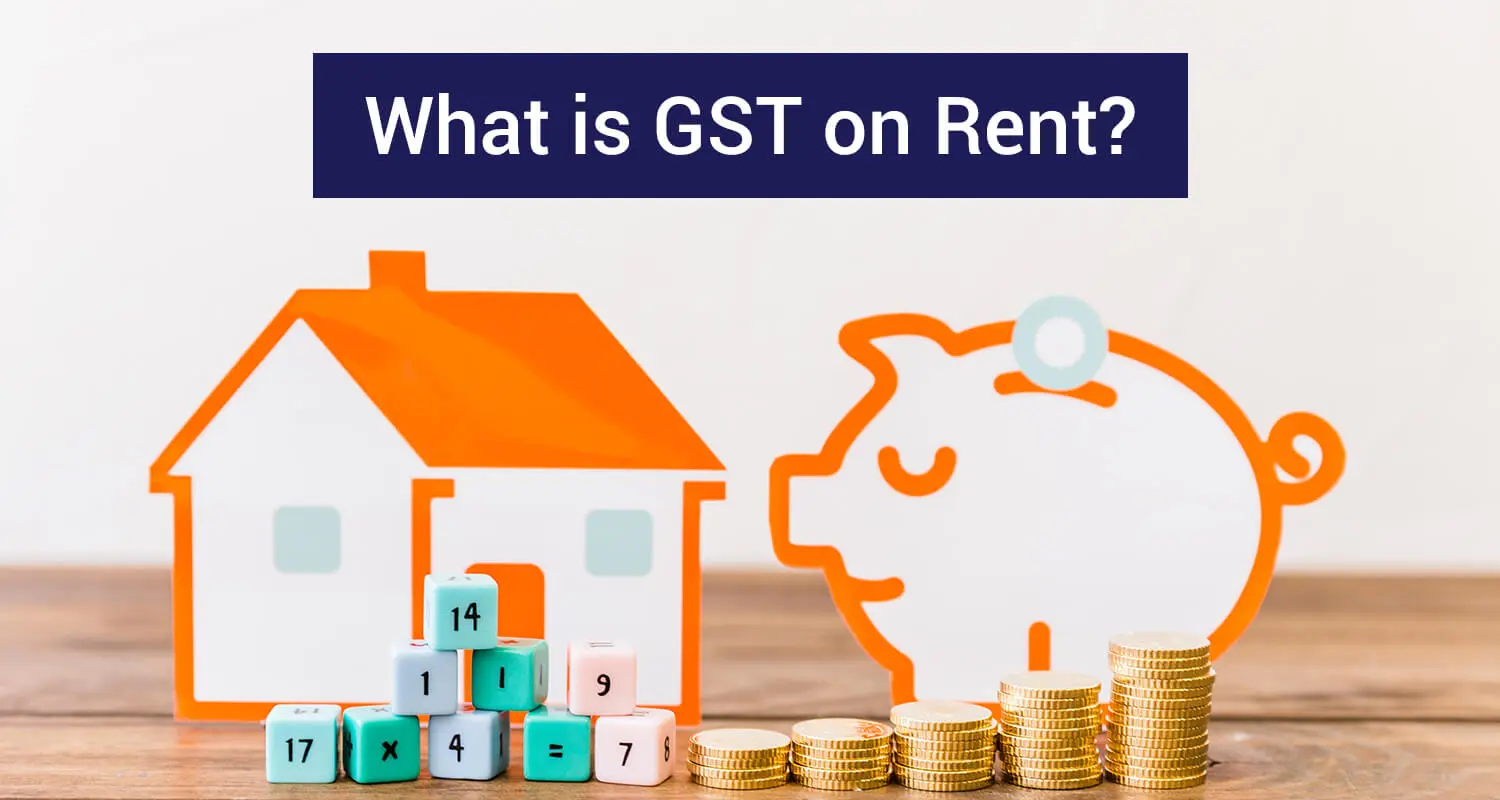GST on Rent: Meaning, Provisions & How to Calculate

What is GST on Rent?
We all are well aware of the GST (Goods and Service Tax). Introduced in 2017, it was meant to regularize the taxation system. But did you know that renting is also considered as a service, and depending on the circumstances, both the landlord as well as the tenant is supposed to pay GST on a rental house.
Landlords and GST
Landlords who own properties and are willing to rent out that particular property might need to pay GST on rental income that they receive from the tenant. Consider this tax as a percentage of the rent amount received and has to be paid to the government on a regular basis. The exact rate usually depends on the various factors mentioned in the rental agreement.
Tenants and GST
Usually, it is the landlord who pays the GST; however, in some cases, tenants may also pay GST on house rent. This GST is generally included in the total rent amount paid to the landlord. In turn, the landlord then pays this GST to the government on the tenant's behalf.
All rentals are not taxed
In India, each and every rental is not subject to GST. It depends on multiple factors such as the location of the property, its type, and how the rented property is being used - residential or commercial purposes.
Definition of GST on Rent
As per the notification issued by the Finance Ministry of India on December 30, 2022 - The exemption from GST will cover the "services by way of renting of a residential dwelling to a registered person where – (i) the registered person is the proprietor of a proprietorship concern and rents the residential dwelling in his personal capacity for use as his own residence; and (ii) such renting is on his own account and not that of the proprietorship concern.
What it means is that if you own a business in the capacity of a sole proprietor or in partnership with a GST-registered firm, there is no need for you to pay GST on rent for your own home. However, if you rent a place for your business operations, then the standard rate of 18% GST will be applied.
Get Gold Loan at the comfort of your home
Apply NowBenefits of GST on Rent
As far as direct benefits are concerned, there aren't many direct benefits of GST on rent for tenants or landlords renting specifically for residential purposes. In fact, it can add some complexity. However, if you look at the bigger picture, there are some potential advantages:
- GST ensures transparency for rental transactions. The tax amount is clearly defined, reducing the chances of hidden charges or unreported income.
- Businesses that rent commercial properties and are registered under GST can claim Input Tax Credit (ITC) on the GST paid as rent. This ITC can be used to offset their own GST liability on their business activities thus resulting in some tax savings for businesses.
- The additional tax collected through GST on commercial rents can potentially be used by the government to fund different types of public services and infrastructure projects.
Types of GST on Renting
There are essentially two broad categories.
GST on Renting of Residential Properties
No GST applies if you rent your place to someone who will live there themselves (not for business). Basically, GST for house rent is not applicable. i.e., renting out a house or apartment for someone to use as their home is free from any kind of GST. However if you rent to a business, or the tenant uses the property for business purposes, then GST at its standard rate will be charged.
GST on Renting of Commercial Properties
Renting out any commercial property is considered a taxable service under GST. This means there's an 18% GST charge on the taxable value of the rent.
There's a special exemption for registered religious and charitable trusts that manage public religious places. They can avoid GST on rental income, but only if they meet these conditions:
- Rooms: Daily rent must be below Rs. 1,000.
- Shops: Monthly rent must be below Rs. 10,000.
- Open Areas/Halls: Daily rent must be below Rs. 10,000.
It must be noted that this exemption only applies to renting out space within the religious place itself, not separate commercial properties owned by the trust.
How to calculate GST on rented out properties
A standard rate of 18% GST is applicable on renting immovable property. In order to calculate the GST on rented out properties, this formula is used:
GST = (Rent x 18)/100Let's say your monthly rent of a commercial property is Rs. 30,000, the GST payable on it would be calculated as follows:
GST = (30,000 x 18)/100
GST = Rs. 5,400
Therefore, the landlord would have to pay Rs. 5,400 as GST on the monthly rent of Rs. 30,000.
Conclusion:
Often people get confused and anxious while dealing with GST rentals, especially for commercial properties. However, by understanding the basic principles of GST on rent, both landlords and tenants can ensure they are following the regulations and avoid any potential issues. If you're still unsure about the GST implications of your rental situation, do not hesitate to get in touch with a tax professional.
FAQs:
Q1: Does GST apply to commercial rent?A: Yes, an 18% GST applies to commercial rent. This may include renting out shops, offices, warehouses, and any other property used for business purposes. However there's an exemption for small businesses with an annual turnover below Rs. 20 lakhs.
Q2: Does GST apply to residential rent?A: No, GST is not applicable to rent received from renting out a residential property to someone who will live there (use it as their residence).
Q3: Can I claim tax credit (ITC) on GST paid for rent?A: In most cases, if you pay GST on rent (usually for commercial properties), you might be eligible to claim Input Tax Credit (ITC) on that GST amount. It may work in your favour to offset other GST liabilities that you may have.
Q4: Who needs to register for GST when renting property?A: If you rent out property to a business and your annual income (including rent and any other income) exceeds Rs. 20 lakhs, you'll need to register for GST and pay taxes on the rent. This applies to both landlords and tenants (if they are registered businesses).
Q5: How is the GST on rented property calculated?A: The GST is calculated using the formula "GST = (Rent x 18)/100" where 18% is the standard GST rate applicable.
Get Gold Loan at the comfort of your home
Apply NowDisclaimer: The information contained in this post is for general information purposes only. IIFL Finance Limited (including its associates and affiliates) ("the Company") assumes no liability or responsibility for any errors or omissions in the contents of this post and under no circumstances shall the Company be liable for any damage, loss, injury or disappointment etc. suffered by any reader. All information in this post is provided "as is", with no guarantee of completeness, accuracy, timeliness or of the results etc. obtained from the use of this information, and without warranty of any kind, express or implied, including, but not limited to warranties of performance, merchantability and fitness for a particular purpose. Given the changing nature of laws, rules and regulations, there may be delays, omissions or inaccuracies in the information contained in this post. The information on this post is provided with the understanding that the Company is not herein engaged in rendering legal, accounting, tax, or other professional advice and services. As such, it should not be used as a substitute for consultation with professional accounting, tax, legal or other competent advisers. This post may contain views and opinions which are those of the authors and do not necessarily reflect the official policy or position of any other agency or organization. This post may also contain links to external websites that are not provided or maintained by or in any way affiliated with the Company and the Company does not guarantee the accuracy, relevance, timeliness, or completeness of any information on these external websites. Any/ all (Gold/ Personal/ Business) loan product specifications and information that maybe stated in this post are subject to change from time to time, readers are advised to reach out to the Company for current specifications of the said (Gold/ Personal/ Business) loan.



